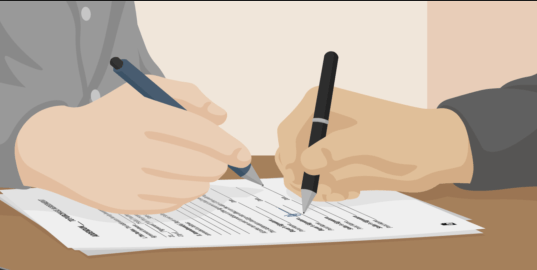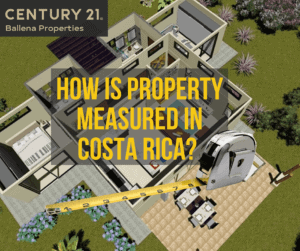Who writes up this purchase agreement? What should be in this contract? And is it legally binding?
A real estate sales/ purchase agreement is the contract where the seller gives the buyer the exclusive right to purchase a specific piece of property. The contract stipulates all the details accepted by both parties on the property transaction and make it legally binding.
The language
Although the official language in Costa Rica is Spanish, this legal document doesn’t necessarily have to be in Spanish. Many of the “Sales and Purchase Agreements” these days are in English especially with the large volume of newcomers to Costa Rica being from the USA, Canada and Europe, where the international language of business is English.
Legally binding
To make a real estate purchase option in Costa Rica legally binding, it’s recommended that a Costa Rican lawyer who is a “notary of the Public” ( one of the highest designation for lawyers in Costa Rica) writes up the agreement. Doing this will guarantee that the agreement is legally binding; and also there will be earnest /deposit money involved, which needs to be protected. The “notary public” can include the necessary text for any of the parties, to present the document to the National Registry, to make it legally binding (when the other party doesn’t comply with what’s promised)
Different names
A real estate purchase option can have many different names, depending on the language and who writes it up:
– Sales / Purchase agreement (SPA) (Most Common in Name in Costa Rica)
– Option to purchase sale agreement
– Buy Sell agreement
– Property purchase agreement
– Reciprocal promise to buy and sell
– Letter of intent
The Content
A real estate purchase option in Costa Rica usually carries the following content:
– Names and legal information of the seller and the buyer
– Legal Description of the Property that is Registered in the National Registry
– The Property Survey Map / Official Plano
– The Reciprocal Promise (what do they promise)
– Earnest Money Deposit and Payment Schedule – how much, where and when
– Earnest Money Escrow Agreement – who gets what, if there is a problem
– Liens and Encumbrances – making sure there are none, or what to do when there are any
– Property Survey – this allows the buyer to hire a surveyor to check property lines
– Home Inspection – this allows the buyer to hire a home inspection, specific details
– Risk of Loss or Damage – who is responsible for the property until closing
– Property Taxes and Utilities – which documents should be provided by the seller at closing
– Real Estate Commission – who pays the real estate commission and when.
(Read our previous blog for more information about real estate commissions and fees)
– Closing Costs – who pays the legal costs for doing the transaction and the registrations in the National Registry
– Arbitration Agreement – this describes what happens in case of a disagreement before closing
– Contractual Address for the Parties – where can parties be notified
– Public Instrument and Translation – this describes what happens in case the agreement is written in another language than Spanish.
– Before you sign a real estate purchase option in Costa Rica, be sure to get professional advice from a lawyer who represents YOU.
Do you want more information or do you have any questions? Contact us.
For more information about the process of buying or selling a property in Costa Rica, we recommend reading our previous blogs: “Buying a property in Costa Rica – how long does it take to complete?” or “What you should look for when buying property in Costa Rica“.



